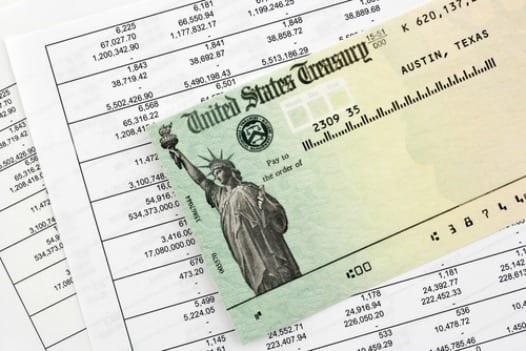Delay in Tax Filing Season Means Later Refunds for Many
Millions of taxpayers banking on refunds from the IRS will have to wait a little longer to get them this year.
The last-minute passage of the American Taxpayer Relief Act – better known as the fiscal cliff bill – has pushed back the start of tax filing season until Jan. 30, and the refund process backs up with it.
The IRS estimates that 120 million Americans will be eligible to file on Jan. 30, but another 20 million taxpayers will have to wait until late February or early March because of extensive form and processing changes needed for more complex returns.
Many people file returns early in hopes of getting a refund that will help pay bills accumulated during the Christmas season. That group typically doesn’t itemize deductions, making returns fairly simple to file and process.
Refunds Back in 21 Days
According to the IRS website, 90 percent of taxpayers who e-file their returns, receive refunds in less than 21 days. Thus, if you were ready to file on Jan. 30 when the IRS stars accepting returns, you should receive a refund by Feb. 20.
That would put the IRS about a month behind where it was in 2012, when the tax filing season opened Jan. 6 and the first refunds were mailed by Jan. 20.
The backup is directly related to the fiscal cliff crisis that Congress couldn’t settle until New Year’s Day. The IRS had to wait until the final bill was signed before updating forms to reflect changes and then testing the processing systems to ensure accuracy.
That allowed them time to include three major tax “extender” provisions dealing with college tuition and fees; teacher classroom supplies; and state and local sales tax deductions.
“We have worked hard to open tax season as soon as possible,” IRS Acting Commissioner Steven T. Miller said in a statement. “This date ensures we have the time we need to update and test our processing systems.”
Miller said that filing electronically is the best option for those in a hurry to get a refund. Paper tax returns take more than four weeks to process. More than 80 percent of taxpayers filed electronically last year.
Bill Helped Millions Avoid AMT Tax
The fiscal cliff bill took care of many of the uncertainties taxpayers fretted over with their 2012 tax bill, most notably putting a “patch” on the Alternative Minimum Tax so that it didn’t rope in about 28 million middle-class Americans.
That group was due to pay an average of $3,700 more in taxes per family had Congress not put a patch on it for 2012 to reflect inflation since it was originally passed in 1983. Congress is expected to permanently index the AMT for inflation this year.
There are some forms that were affected by the fiscal cliff deal that required the IRS to do extensive programming and testing that will delay filing for some taxpayers. The forms include residential energy credits, depreciation and amortization, and general business credits.
A full list of forms not accepted until later is available on the IRS website.
Sources:
- Ebeling, A. (2013, January 8). Where’s My Refund? 2013 Tax Filing Season Will Open Late. Forbes.com. Retrieved from http://www.forbes.com/sites/ashleaebeling/2013/01/08/wheres-my-refund-2013-tax-filing-season-will-open-late/
- Luhby, T. (2013, January 8). IRS will accept tax returns starting Jan. 30. CNNMoney. Retrieved from http://money.cnn.com/2013/01/08/news/economy/tax-returns/index.html


















